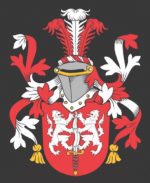Finnegan is an Irish surname coming from the Gaelic Ó Fionnagáin, meaning “son of fair-haired.” James Joyce immortalized the name for all time in his 1939 novel Finnegans Wake. But literary giants aside, Finnegan is one of the most recognizable Irish surnames of our times. The Finnegan clan’s ties to America have only bound more tightly since the election of Joe Biden as … [Read more...] about The Finnegan Clan

